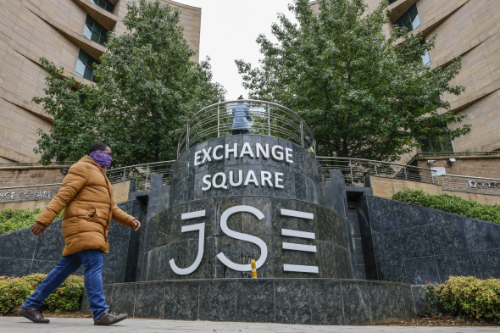Johannesburg Stock Exchange Weighs 24-Hour Trading Amid Global Shift

TLDR
- Africa’s largest stock exchange, the Johannesburg Stock Exchange (JSE), is exploring a move to 24-hour trading as part of broader efforts to align with global financial markets
- The JSE is reviewing the feasibility of longer trading sessions, following similar steps by global peers including the NYSE, Nasdaq, Cboe, and the London Stock Exchange
- These moves are driven by rising retail investor participation, mobile trading, and demand for time zone flexibility
Africa’s largest stock exchange, the Johannesburg Stock Exchange (JSE), is exploring a move to 24-hour trading as part of broader efforts to align with global financial markets, CEO Leila Fourie said in an interview with Bloomberg.
The JSE is reviewing the feasibility of longer trading sessions, following similar steps by global peers including the NYSE, Nasdaq, Cboe, and the London Stock Exchange. These moves are driven by rising retail investor participation, mobile trading, and demand for time zone flexibility.
“We are investigating this avenue and will work with our market to ensure the right outcome for South Africa,” said Fourie, noting that a final decision will be made in the medium- to long-term after consultations.
Proponents argue that extended hours would benefit South Africa’s capital markets, especially given the country’s high number of dual-listed companies. But local traders remain sceptical, citing thin trading volumes and low liquidity as structural hurdles.
JSE Ltd. shares rose as much as 1.9% before paring gains to trade 0.3% higher at R136.73 by 1:42 p.m. in Johannesburg. The exchange reported a 15% year-on-year increase in first-half EBIT earlier in the day.
Daba is Africa's leading investment platform for private and public markets. Download here
Key Takeaways
The JSE’s consideration of round-the-clock trading reflects a global trend but may face headwinds from local market dynamics. In developed markets, extended hours have been driven by large volumes, global institutional flows, and high-frequency trading. In contrast, South Africa’s exchange remains relatively illiquid, with average daily turnover far below that of major exchanges. Broker resistance stems from concerns over cost-benefit balance. Extended sessions would require increased staffing, tech upgrades, and risk management resources—expenses that may not be justified by current trading activity. However, there may be room for phased adoption. The JSE could begin with specific instruments or overnight trading windows targeting dual-listed stocks or international investors. A hybrid model could also allow after-hours trading without full 24-hour coverage. While aligning with NYSE or Nasdaq offers potential benefits in visibility and access, success will likely depend on local demand and broader reforms to attract more capital flows. In the near term, a move to 24-hour trading may remain more symbolic than structural, unless matched by meaningful volume growth.

Next Frontier
Stay up to date on major news and events in African markets. Delivered weekly.
Pulse54
UDeep-dives into what’s old and new in Africa’s investment landscape. Delivered twice monthly.
Events
Sign up to stay informed about our regular webinars, product launches, and exhibitions.




